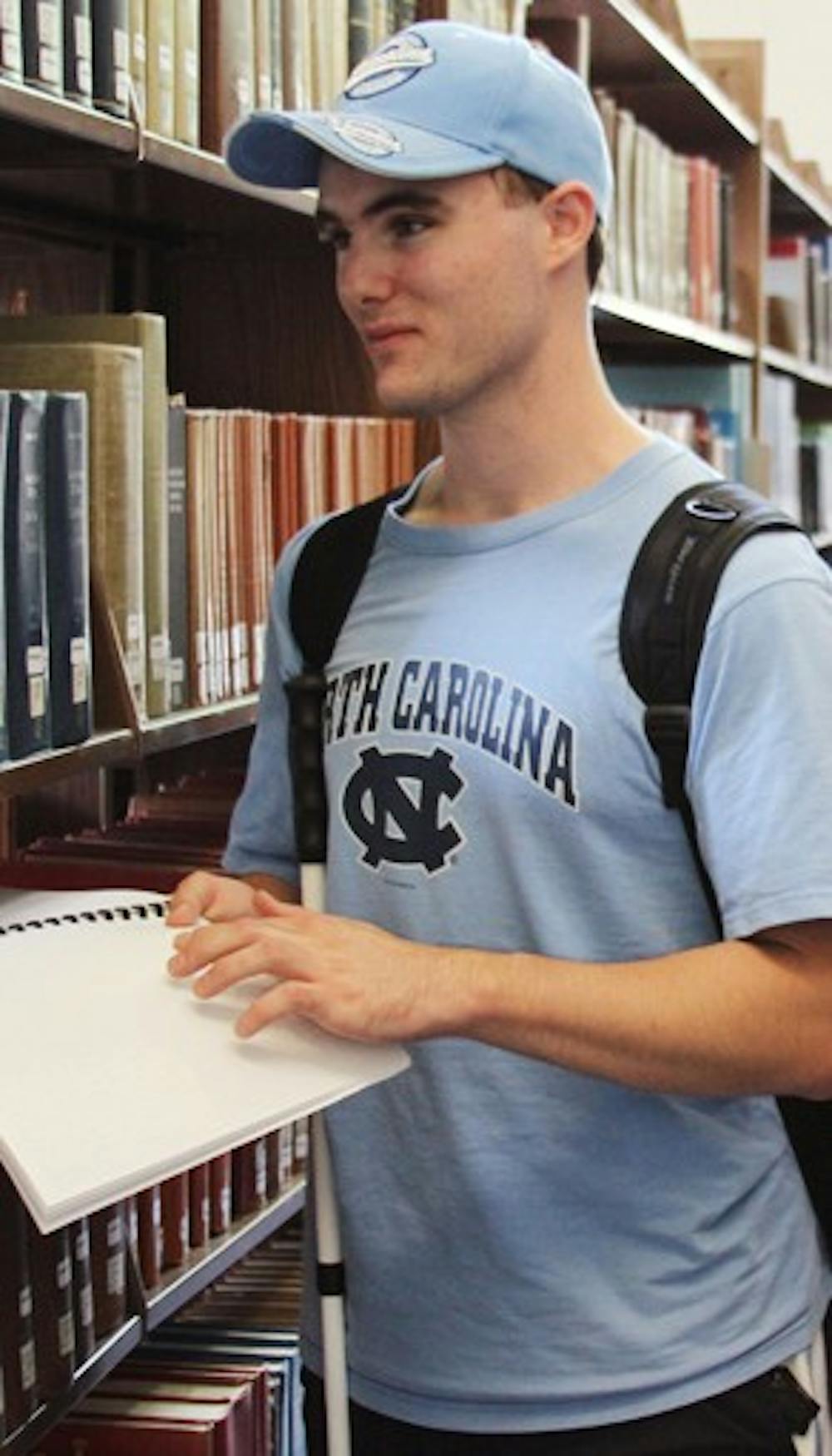A slow-paced, robotic voice resonates from a room in Cobb Residence Hall.
The voice is a special feature on UNC sophomore Kevin Currin’s phone which allows him to listen to text messages, instead of seeing them.
Currin is one of the fewer than 10 visually impaired students registered with the disability services office at UNC, said Jim Kessler, director of disability services at the University. Five students are registered as hard of hearing, he said.
This isn’t the first time Currin has been one of only a few visually impaired students. In the ninth grade, Currin switched from the Governor Morehead School for the Blind to a regular public school.
By January, students who attend one of North Carolina’s three residential schools for the visually impaired and hard of hearing might have to change schools.
By that date, the N.C. Department of Public Instruction will announce the closure of either the Governor Morehead School for the Blind, the Eastern N.C. School for the Deaf or the N.C. School for the Deaf.
The recently passed state appropriations bill mandates the state close one of those three schools because they no longer meet the needs of visually impaired and hard of hearing populations in an effective manner.
The impact of this impending closure is uncertain.
An estimated 220 students attend all three schools. These students represent less than five percent of visually impaired or hard of hearing students in North Carolina, said Tom Winton, a section chief in the department’s exceptional children division.



